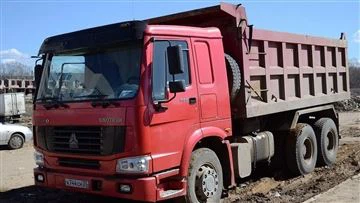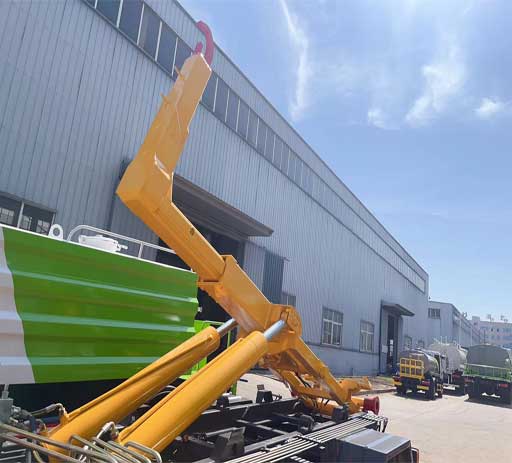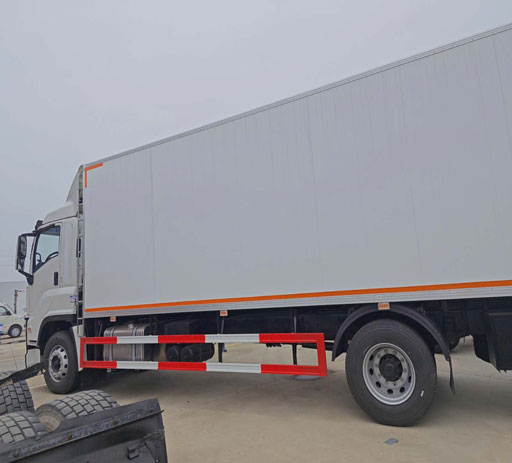Types of Garbage Trucks: A Comprehensive Guide

Garbage trucks play a crucial role in waste management, ensuring our streets remain clean and environmental hazards are minimized. Understanding the different types of garbage trucks can help municipalities and individuals choose the right option for their waste disposal needs. In this article, we will explore the various types of garbage trucks, their mechanisms, and their specific purposes.
1. Overview of Garbage Trucks
Garbage trucks are specialized vehicles designed to collect and transport waste materials. Depending on the type, they are equipped with different features to handle various waste management tasks. These trucks are vital in maintaining urban cleanliness and promote public health.
1.1 Key Functions of Garbage Trucks
- Collection of residential and commercial waste
- Transporting materials to landfills or recycling centers
- Maintaining hygiene in public spaces
2. Types of Garbage Trucks
2.1 Front Loader Trucks
Front loader trucks are characterized by their front-mounted hydraulic forks, which lift and dump waste containers into the truck’s hopper. These trucks are commonly used for commercial and industrial waste collection.
Advantages
- High efficiency for large volumes of waste
- Reduces the need for manual labor
- Capable of handling heavy containers
Disadvantages
- Less effective for residential collection
- Requires trained operators
2.2 Rear Loader Trucks
Rear loader trucks have a compactor at the back of the vehicle. Waste is manually placed into the truck from the rear side, which allows for easy access.
Advantages

- Great for residential garbage collection
- Flexible in navigating tight spaces
Disadvantages
- Less efficient for large-scale operations
- Requires more manual labor
2.3 Side Loader Trucks
Side loader trucks have arms that extend from the side of the vehicle to pick up waste bins. They are increasingly popular in urban areas for their ability to collect waste efficiently without leaving the driver’s seat.
Advantages
- Improves safety for the crew
- Reduces time spent at each stop
Disadvantages
- Limited to specific types of waste containers
2.4 Automated Garbage Trucks
Automated garbage trucks use robotic arms to collect waste, making them one of the most advanced options on the market. They offer significant efficiency gains as they can operate with minimal human intervention.
Advantages
- Reduces labor costs
- Minimizes worker injury risks
- Enhances collection speed
Disadvantages
- Higher initial investment costs
- Requires staff training to operate
2.5 Dumpster Trucks
These trucks are designed to transport dumpster containers, typically used for construction or large commercial waste generation.
Advantages
- Handles large volumes of waste effectively
- Versatile for various types of materials
Disadvantages
- Not suited for regular household waste collection
3. Specialized Garbage Trucks
3.1 Recycling Trucks
Recycling trucks are specifically designed for collecting recyclable materials. They usually have separate compartments or compartments to prevent contamination.
Benefits of Recycling Trucks
- Encourages recycling efforts
- Maintains cleanliness in recyclable waste
3.2 Hazardous Waste Trucks
These trucks are designed to safely collect and transport hazardous waste materials, ensuring compliance with environmental regulations.
Key Features
- Containment systems to prevent leaks
- Specialized training for operators
4. Environmental Considerations
With increasing awareness of environmental impacts, many garbage trucks are now designed with eco-friendly features, including:
- Hybrid and electric models to reduce emissions
- Compaction technology to maximize volume and minimize trips
5. How to Choose the Right Garbage Truck
Choosing the right garbage truck depends on several factors:
5.1 Assessing Waste Volume
Understand the amount and type of waste you will be collecting. For larger volumes, front loaders or side loaders may be more suitable.
5.2 Considering Space Constraints

Evaluate the areas where the truck will operate. Tight urban spaces may require rear or side loaders.
5.3 Budgeting
Factor in both initial purchase costs and long-term operating costs. Automated vehicles may save on labor, but they come with higher upfront expenses.

5.4 Environmental Impact
Consider trucks that use cleaner technologies to align with sustainability goals.
6. Practical Examples of Garbage Truck Operations
6.1 Residential Collection
In many neighborhoods, rear loader trucks are commonly used for residential garbage collection. These trucks can navigate narrow streets and corners while efficiently picking up waste from designated areas.
6.2 Commercial Collection
Front loader trucks are often utilized in commercial districts where large bins are placed outside businesses. Their hydraulic arms allow for quick and efficient service.
6.3 Construction and Renovation Sites
Dumpsters are often employed in construction sites, transported by dumpster trucks that can handle various types of debris, minimizing environmental impact.
7. Maintenance Tips for Garbage Trucks
Regular maintenance of garbage trucks is essential for optimal performance and longevity. Key maintenance strategies include:
- Routine inspections of hydraulic systems
- Regular oil changes and checks on fluid levels
- Tyre inspections to ensure safety and efficiency
8. Frequently Asked Questions (FAQ)
8.1 What type of garbage truck is best for residential areas?
Rear loader trucks are typically the best choice for residential areas due to their ability to maneuver in tight spaces and their efficiency in picking up residential waste.
8.2 How do automated garbage trucks work?
Automated garbage trucks use robotic arms to lift and empty bins without the need for manual labor, significantly increasing efficiency and safety.
8.3 What materials can recycling trucks collect?
Recycling trucks can collect various materials, including paper, plastics, metals, and glass, often sorted into separate compartments to prevent contamination.
8.4 Are there eco-friendly options for garbage trucks?
Yes, many manufacturers offer hybrid or fully electric garbage trucks that reduce emissions and are more environmentally friendly than traditional diesel models.
8.5 How do I choose the right garbage truck for my business?
Consider your waste volume, space constraints, budget, and the environmental impact when choosing the right garbage truck for your business needs.
8.6 How often should garbage trucks be serviced?
Garbage trucks should be serviced regularly, with detailed inspections at least once a month, and more frequently based on usage and operational demands.
